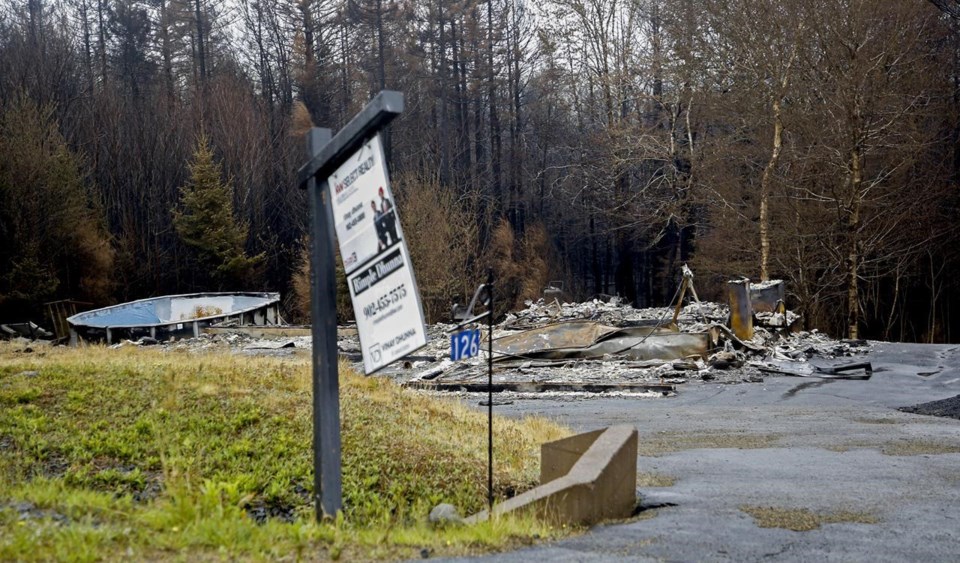HALIFAX — The record-breaking wildfire in southwestern Nova Scotia that started 11 days ago near Barrington Lake is no longer moving, emergency officials said Wednesday.
The province issued a statement saying the fire, which grew to become the province's largest on record, was "being held" and was not expected to move if the cool and wet conditions experienced since Friday persist.
"It has been a long haul for a lot of people," Natural Resources Minister Tory Rushton told an afternoon briefing. "Firefighting efforts are working with assistance from the weather."
But Rushton stressed that the fire remains out of control, even though its progress has been stalled.
At its peak, the fire covered about 230 square kilometres in Shelburne County, the department said, reducing a previous calculation. The statement said a recent aerial survey produced a more accurate picture.
Eddie Nickerson, warden for the Municipality of Barrington, announced that all of the wildfires across southwestern Nova Scotia, including the Barrington Lake Fire, had been "successfully contained."
"We have now seen multiple days of no significant growth of this wildfire," he said.
The biggest wildfire, which started May 27, destroyed about 60 homes and cottages and another 150 structures, but it has not grown since Saturday. About 6,700 people were evacuated from their homes, which is about half of the county's population.
On Wednesday, fire crews continued to extinguish hot spots, even though the area had been soaked by about 100 millimetres of rain since Friday -- roughly the amount the region usually sees in a month.
On the ground, the fire was being held back by 130 firefighters from the department and 40 volunteer and municipal firefighters.
Earlier this week, a six-member recovery team from Alberta arrived in Shelburne County to help provincial assessors inspect destroyed and damaged properties and infrastructure. The team was called in because it has extensive experience with big wildfires in Alberta.
Meanwhile, those in Shelburne County under evacuation orders were asked Wednesday to contact their municipality to book an appointment during which they can learn more about the status of their properties.
Penny Smith, warden for the Municipality of the District of Shelburne, said the process of getting evacuees back into their home would be expedited.
"We understand that this is an extremely stressful time, and we are working hard to ensure that all community members are properly informed during this phase," she told the briefing. "We are focused on taking a safety-first approach ... as fire marshals and the RCMP conduct investigations."
Dave Rockwood, a spokesman for the Natural Resources Department, said firefighters in the area are still hard at work. "We will continue to work the ground until we're comfortable that we can ensure that every little bit of smouldering debris is out and that this wildfire is not going to cause trouble," he said.
At the provincial legislature, Nova Scotia's deputy minister of agriculture, Loretta Robichaud, said about 20 livestock farmers and greenhouses have been affected by the evacuation orders in Shelburne County.
"We had to move livestock animals to the exhibition grounds … and for greenhouses it's very unfortunate, but they can't get back to water (their crops)," she said Wednesday. "So that will be an entire crop lost within a greenhouse."
The province announced later in the day that it would provide a one-time grant of $2,500 to registered farmers in the mandatory evacuation zones in Halifax and Shelburne County.
In suburban Halifax, a wildfire that started May 28 was largely contained on Saturday. It destroyed 150 homes and forced about 16,000 residents to flee the area northwest of downtown. About 4,000 people were waiting to return to their Halifax-area homes as of Wednesday.
This report by The Canadian Press was first published June 7, 2023.
Michael MacDonald, The Canadian Press



